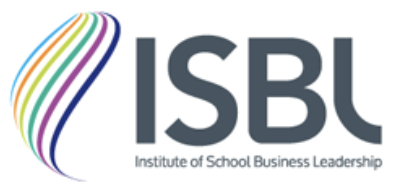Stephen Morales
CHIEF EXECUTIVE
As the Chief Executive of the Institute of School Business Leadership (ISBL), I have dedicated the last 10 years of my career, in a national role, to unleashing the potential and promoting the professionalisation of a disparate community of school leaders. In collaboration with the Department for Education (DfE), ISBL has supported over 10,000 practitioners in gaining formal qualifications. As part of my vision for a professionalised workforce of school business leaders, in 2015, I instigated the development of professional standards that are now nationally recognised and feature in the Academy Trust Handbook.
In 2017, I led the complex transition of the National Association of School Business Management to institute status. The process involved making a robust case to Companies House, securing Secretary of State approval and ensuring unwavering support from key sector stakeholders.
Since I took up the reigns of the organisation nearly 10 years ago, ISBL has trained thousands of school leaders in the areas of financial assurance and effective resource management. We have secured numerous government contracts including a developing programme for clerks, better access to financial expertise for primary schools, the school resource management adviser (SRMA) initiative, and, more recently, the trust CFO mentoring pilot.
I strongly believe that school business professionals and indeed their leadership and governance colleagues are better equipped, more sophisticated and technically stronger as a result of ISBL’s work over the last decade. As a standing member of the DfE’s Financial Reporting Programme Board, I am privy to data that supports this assertion.
In a non-executive capacity, as an Academy Ambassador, I have discharged my governance responsibilities with oversight of school improvement strategies, ensuring appropriate support for children with additional needs and providing Ofsted with confidence in our work.
This experience and influence has afforded me unique insights into both policy and practice. I have a very strong understanding of policy levers and the role of key actors in the ongoing evolution of our mixed economy education system.
As well as leading transformational change at ISBL, I have supported trust leaders across the country with a range of strategic priorities, including the importance of a clear organisational culture and values, organisational design, preparing for growth, developing central teams, striking the balance of autonomy over funding, and how to attract and retain talented staff by becoming an authentic employer of choice. In addition, I work with numerous think tanks and sector bodies, addressing some of the main issues confronting society.
I initiated and continue to chair a sector leaders’ equity, inclusion and diversity focus group.
In my current capacity as CEO, I believe I have fostered a culture of continuous improvement, where we embrace new thinking and individual contributions are recognised and valued.
It is my belief that the success of any education system cannot exceed the quality of its workforce. Highly motivated and valued teachers are central to any high-performing education system. The mix of ingredients including strong culture, robust structures and effective talent management is essential to any successful trust and, most importantly, the outcomes for the children it serves. Any people strategy must successfully attract and retain committed and highly motivated teachers if we are to ensure optimum pupil attainment. Supporting the personal and professional ambition of the staff, both pedagogical and non-pedagogical, should be a priority for any school.
I have been a long-standing advocate of joined-up leadership, and I have spent my career promoting the importance of a strong leadership triangle where pedagogy, business and governance operate seamlessly and inclusively together. To that end, in 2021, I published a paper entitled “Barriers to joined-up leadership in the English education system”.
I understand the heavy scrutiny on trusts and the effort required to adhere to a very demanding regulatory framework. I have a deep understanding of these requirements, and I have been close to many of the policy developments related to trust accountability. I have a background in strategic finance and understand the importance of rigorous evidence-based planning, optimal resource management and robust controls.
As a sector leader, I am not afraid to challenge orthodoxy, and I will always encourage innovation and creative thinking. My leadership approach is underpinned by the Boyatzis self-directed learning model characterised by a continuous improvement loop of plan, do, review and reflect.

